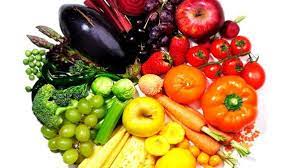Why living a Vegetarianism Lifestyle?
Vegetarianism is a practice of avoiding the consumption of meat and its by-products. There are several types of vegetarians, some choose dairy products, some may include eggs in their diet, and some people do not eat animal products at all. What all vegetarians have in common is to eat plant-based foods to meet their nutritional needs.
Why do people choose vegetarian food?
There are some reasons behind choosing a vegetarian diet.
Ethical reasons:
In this case, people do not eat meat and meat products because they do not want to harm or kill animals.
Environmental reasons:
Some people choose to be vegetarian to prevent the animal environment
Waste from factories and farms to protect land, water, trees and forests.
Religious belief:
Religious belief occupies a very important position in vegetarianism. People do not eat meat, which is a by-product, and they avoid vegetables such as onions, garlic, and potatoes because of their religious beliefs [1].
Types of vegetarianism:
Lacto-egg vegetarians:
They eat dairy products, eggs, fruits, vegetables, grains, nuts and legumes.
Ovo-vegetarian:
They do not eat meat, fish, poultry and dairy products, but eat eggs.

Milk vegetarian:
They eat dairy products, fruits, vegetables, grains, nuts and legumes.
Some vegetarian food:
They do not eat meat but fish[2].
Eat healthy as a vegetarian:
The Eatwell guide shows the different types of food that vegetarians should eat to meet their nutritional needs.
Eat a variety of fruits and vegetables every day because they are rich in antioxidants, vitamins, minerals and fiber.

Choose starchy grains such as potatoes, rice, bread, cereals, and whole grains to maintain a healthy and balanced diet.
Calcium is the most important for bones, so choose dairy products and their alternatives, such as soy milk, almond milk and oatmeal drinks.
Get protein from plant sources such as beans, legumes, legumes, and nuts.
Choose unsaturated fats such as olive oil, vegetable oil, rapeseed oil, and sunflower oil instead of saturated fats such as butter and ghee.
Limit high-salt, high-sugar and high-fat foods such as cream, cheese, ice cream, pastries, puddings and cakes [4].
The health benefits of vegetarian food:
Vegetarian food has many health benefits, and this is the way most young people use it throughout their lives.
Weight:
Vegetarian diet can help reduce weight in the short term, and research is ongoing to understand its long-term weight control effects.
Cholesterol:
Vegetarian diet helps control cholesterol and prevent the risk of heart disease.
Cancer:
Plant-based foods are mainly used for vegetarian food and help prevent cancer.
Diabetes:
People who follow a vegetarian diet are less likely to develop diabetes because they eat fruits, vegetables, whole grains, and legumes, and consume less unhealthy foods such as saturated fats and refined or processed foods.
Calories:
Through a vegetarian diet, a person can obtain the correct number of calories, which also contributes to weight management [3].
The health risks of a vegetarian diet:
Protein deficiency may occur because plant-based protein is slightly different from animal-based protein.
Vitamin B12 is only found in meat. If vitamin B12 supplements are not taken, they can cause nervous system problems and anemia.
Iron deficiency may occur because iron from animal sources is most easily absorbed compared to plant sources.
Vegetarians who do not eat fish and eggs will suffer from Omega 3 fatty acid deficiency. Therefore, this deficiency can be compensated by supplementing with Omega 3 [2].
References:
1-Klemm, S. (2021, october 1). Vegeterianism: The basic facts. Retrieved november 4, 2021, from eat right Academy of Nutrition and Dietetics: https://www.eatright.org/food/nutrition/vegetarian-and-special-diets/vegetarianism-the-basic-facts
2-Havard Health Publishing. (2020, April 15). Becoming a vegeterian. Retrieved November 4, 2021 , from Havard Health Publishing: https://www.health.harvard.edu/staying-healthy/becoming-a-vegetarian
3-Brazier, Y. (2020, January 20). what to know about the vegetarian diet. Retrieved November 5, 2021, from MedicalNewsToday: https://www.medicalnewstoday.com/articles/runners-diet#summary
4-NHS. (2018, August 1). The vegetarian diet. Retrieved November 4, 2021, from NHS: https://www.nhs.uk/live-well/eat-well/the-vegetarian-diet/




